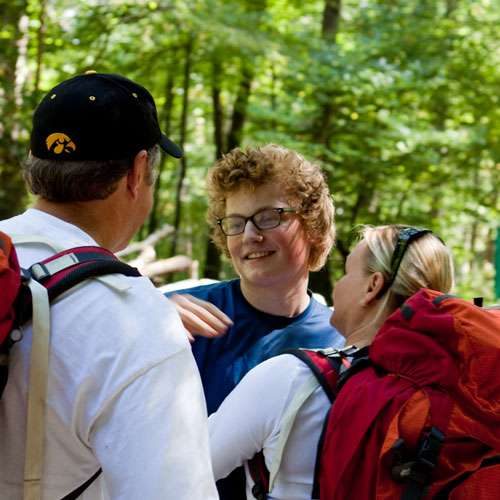There should be more than one day a year dedicated to giving thanks and showing appreciation for people in your life. The holiday season is a good reminder to focus on spending time with loved ones, giving to others, and acknowledging the positives in one’s life. This can be particularly difficult for teens who are struggling with depression that find it hard to experience satisfaction with positive things in their lives. Depression seems to cloud their world and leads to intense feelings of hopelessness and helplessness. Showing gratitude in relationships, particularly over the holiday season, can help teens with depression build a stronger support system.
How Depression Affects Showing Gratitude
There is a common myth that teens struggling with depression don’t appreciate how good or how easy they may have it. If your teen seems withdrawn and struggles to feel connected in relationships, it is probably not because they are ungrateful for the people in their lives and what they do for them. This idea may reinforce feelings of guilt for struggling to show emotion and appreciation.
Encouraging your depressed teen to be more grateful may feel invalidating if they are stuck in a hopeless mindset. However, focusing on gratitude in relationships, rather than for their experiences, may seem more realistic for teens.
Benefits of a Gratitude Practice
Gratitude’s benefits take some time to occur as they don’t always happen immediately following the gratitude activity. However, the effect of gratitude on the brain appear to be long-lasting and may train the brain to become more sensitive to noticing gratitude for experiences later, thus helping to improve mental health.
- Improves your immune system
- Lowers blood pressure
- Reduces cortisol levels (a stress hormone in the body)
- Reduces aggression
- Reduces stress
- Decreases depression and anxiety
- Improves closeness in your relationships with others.
Simple Steps to Encourage Your Teen to Express Gratitude
- Make a list of things you have instead of things you want. The holiday season can easily become about material things, gift-giving, and abundance. Teens often believe that if they had this or that, they would be happier with their lives, but material things are often just quick fixes. The reward doesn’t last very long. Making a list of supportive people in their life or positive qualities that they feel they have may help them visualize and keep track of positive things that they already have that they can look back on when feeling insecure or empty.
- Write a thank-you note. In a study by positive psychologist Martin Seligman, he asked participants to write and deliver a letter of gratitude to someone who had never been properly thanked for their kindness. The effect of this intervention on their happiness scores lasted for over a month. Thank you letters do not have to be sent to be impactful, but they can be useful in recognizing positive qualities about other people and what is valuable about that relationship.
- Reflect on positive experiences and lessons learned over the past year. As teens begin to develop new year’s resolutions, they often focus on things they want to change in their life and things that they are unhappy with. Framing resolutions as things they want to continue to develop encourages teens to approach resolutions with a more confident mindset, as they have evidence that their goals are realistic. This exercise can also help them acknowledge positive moments that they have had recently, even if they have felt overshadowed by negative experiences.
- Practice acts of kindness. Many teens struggling with depression question whether they are able to be there for others the same way that others try to support them. In dark moments, they acknowledge that small acts of kindness go a long way. In a group therapy setting, teens develop meaningful relationships with others by working together, listening to others, and offering emotional support.
Above all, don’t judge the way they show gratitude. Everyone uses different love languages to show how they care about others. If your teen is struggling with depression and a hopeless mindset, wilderness therapy may help them experience a shift in perspective and feel more connected in their relationships.
For more information about holiday celebrations at Trails Carolina, check out the following resources:
- Holiday Traditions on Campus
- Supporting Parents During the Holidays
- Spending the Holidays at Wilderness Therapy
- Family Stress Over Holiday Season Leads to Unhealthy Coping
- Sibling Support During the Holidays
- Keeping Students Warm During Winter Months
- Practicing Mindfulness over the Holiday Season
Trails Carolina Can Help
Trails Carolina is a wilderness therapy program that helps teens ages 10-17 who are struggling with behavioral and emotional issues. This program uses adventure-based therapy to help students gain a new sense of self-awareness, confidence, and independence. The skills they learn throughout the wilderness program offer long-term benefits towards their ability to successfully self-navigate in the real world. By removing teens from their fast-paced environment into a safe, nurturing, and peaceful environment, they are able to focus on improving and reflecting upon their behavior.
Contact us at 800-975-7303. We can help your family today!
Get started today
Contact us today to learn how Trails Carolina can help your family
Trails saved my daughter’s life. Amanda is an amazing human and a brilliant therapist. I am so grateful to her, Science Steve, and the other wonderful people who could reach my daughter at a time when I could not.
Margot Lowman August 2022
Great life changing experience for our son. After becoming addicted to gaming during covid he was very depressed. At Trails he experienced the wilderness, Science Steve, learning survival skills and top notch therapy and support etc… I highly recommend! This gave our son and our family a renewed family bond full of love and excitement about his bright future.
Winnifred Wilson July 2022
Outstanding clinical work and superb staff! There’s a great culture at this company and it shows with how they engage with families/clients.
Kristin Brace June 2022
Discover If Trails Is The Right Program For Your Child
Take our short online assessment and help us better understand how we can help your family.




